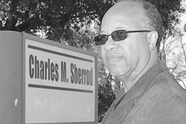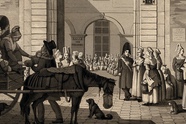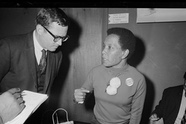The Roundup Top Ten for October 14, 2022

Understanding Colombia's Truth Commission Report after 60 Years of Civil Conflictby Rachel NolanColombia's armed conflict between government forces, leftist rebels, and paramilitary death squads is the world's longest continuous conflict. The nation's massive Truth Commission report undermines decades of official government narrative about the apportionment of blame for atrocities. |

Obama's Lost Manuscript is Also a Lost Path to a Left Populismby Timothy ShenkSubstantive politics? Broad-based benefits for the masses? Rejecting the rule of credentialed technocrats? Mobilizing voters and legislating instead of relying on the courts to protect basic rights? An unpublished 1990s manuscript co-authored by Barack Obama may leave readers wondering what happened to those ideas. |

Can Jurors Hold Alex Jones Accountable?by Heather Cox RichardsonAlex Jones's defenders on the far right claim the judgment is a political persecution. They must remember that the agents of that verdict weren't government officials, but jurors – American citizens exercising a duty to weigh facts and evidence. Maybe the excesses of MAGA need to meet a jury as well. |

The Moral Panic over Activist Teachers Wildly Overstates' Teachers' Powerby Diana D'Amico PawlewiczPublic school teachers have never enjoyed robust academic freedom protections, and have been subject to scrutiny and punishment for "subversive" views, leading to teacher burnout and diminished educational quality. |

Charles Sherrod: An Unheralded Giant of the Civil Rights Struggleby Ansley L. Quiros"Charles Sherrod is the most important civil rights figure you've never heard of"--fighting for six decades in southwest Georgia, persevering through incremental gains after the publicity of the Albany Movement faded. |

The Selective Politics of the "Learning Loss" Debateby Keeanga-Yamahtta TaylorDiscussions of the disruption to learning caused by COVID-related school closures often ignore the endemic inequalities in American education and exposure to harm from COVID, and sideline the voices of teachers who have been sounding the alarm about the dangerous state of their facilities for years. |

Empathy in the Archive: Care and Disdain for Wet Nursing Mothersby Anna K. Danziger Halperin"Just like today, women’s decisions in the past about how to feed their babies were shaped by personal preference, to be sure, but the possibilities available are bounded by technological innovations, shifting medical advice, and social, cultural, and economic pressures and practices." |

The Limits of Nonprofit Urban Development in Bostonby Claire DunningIn Boston, nonprofit agencies became the principal vehicle for redevelopment. While they could empower residents of poor communities to compete for grants and negotiate with city authorities, they couldn't make a deep impact on inequality in the city and let city agencies off the hook for discriminatory policies. |

"Rainbow Fentanyl" Just the Latest Halloween Moral Panicby Joel BestFrom razor blades to opioids, the author has researched every Halloween panic since the 1950s and found no evidence of any child being harmed by any of them. Today, politicians are feeding equally ludicrous narratives to keep people scared. |

Hilary Mantel, Historianby Samuel Clowes HunekeThe celebrated novelist legacy to scholars is a model for examining psychological complexity and political motivation in the past. |